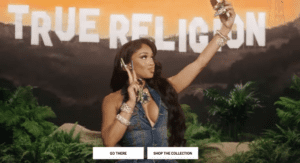
As Independence Day approaches, many brands are flying the red, white and blue. Is your brand patriotic? How does your company express patriotism with brand values?
After 9/11, many brands felt an obligation to climb on the patriotism bandwagon. Seventeen years later brands still face category challenges, but now they must also address socio-political challenges. Of course, “patriotism” isn’t just about ad campaigns surrounded by flags and fireworks. The challenge is to build brands where customers recognize a steady dedication to the value of patriotism.
In 1964, when Supreme Court Justice Potter Stewart was unsure how to define “obscenity,” he famously noted, “. . . I know it when I see it.” Patriotism is in much the same situation today. It’s highly emotional and more easily felt than measured—or articulated. The 17th annual Brand Keys survey of leading American brands has identified the brands their customers feel best embody the value of “patriotism.”
A nationally representative sample of consumers evaluated brands for their resonance on the value of “patriotism.” Based upon an psychologically-based, emotional engagement survey of how people “feel” about which the brands embody “patriotism,” here are some brands that lead the 2019 Patriotism Parade:
Jeep: The vehicle that won World War II and, apparently, every war since, to become an intrinsic part of every war movie produced. Jeep embodies the essence of victory. It radiates patriotism.
Walt Disney: Is there any brand more associated with the vision of patriotic small-town America, Main Street, the town square? With its Hall of Presidents Disney is patriotism personified.
Coca-Cola: The iconic bottle stands for the freedom to create and has become representative of the American way of life.
Levi Strauss: The brand (and man) who created the archetypical American blue jeans.
While the annual survey focuses on for-profit brands, assessments for the armed services— Coast Guard, Air Force, Army, Marines, and Navy—are included. This year, again, consumers of all ages and political persuasions ranked the U.S. armed services #1.
Other leaders include Ford, Hershey, AT&T, Ralph Lauren, MSNBC, FOX, Instagram, Craftsmen Tools and Harley-Davidson.
You May Also Enjoy:
- 10 Trends for Managing Brand Reputation
- Marketing Structures Keeping Brands & Customers Apart: Report
- Renaming Helps Relation Insurance Refocus Brand
We live in an era of political polarization, consumer tribalism, and increasingly fervent social movements that challenge brands with constantly shifting sector landscapes. Not only are the basic tenets of consumer loyalty and brand engagement being upended, the need for brands to define themselves as patriotic becomes increasingly challenging as consumers’ patriotic self-perceptions have increased across all age groups. The percentages for top two-box ratings (“Extremely” or “Very” Patriotic) appear below and were consistent across genders and political affiliations:
Traditionalists 91% (+3)
Baby Boomers 90% (+5)
Gen X 74% (+6)
Millennials 70% (+17)
Gen Z 50% (+8)
The increased levels of consumers’ self-perceptions of patriotism correlates highly with the appearance of more media brands—right and left—on the list. A coincidence? Perhaps it’s evidence that people are paying more attention. Whatever the causality, brands had better pay more attention too.
What’s been independently validated over and over is when a brand can establish emotional connections with a value as powerful as “patriotism,” consumers will engage more strongly, be more willing to believe in the brand, and behave more positively toward it.
These brand rankings do not mean that other brands are not patriotic or don’t possess patriotic resonance. Rational values, like being an American company, “Made in the USA,” or having nationally directed corporate social responsibility, all play a part in brand perception. But politics is making itself felt more than ever in the brandscape.
Brands that can make meaningful emotional connections with consumers always have a strategic advantage when it comes to winning the hearts, minds, wallets, and loyalty of consumers. Do that and consumers will not only stand up and salute, they’ll queue up and buy.
Robert Passikoff is president of Brand Keys.



 Network
Network

